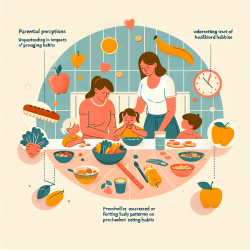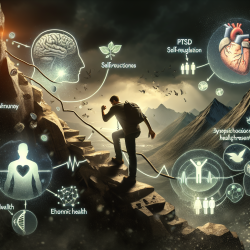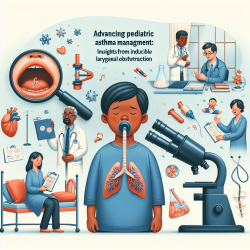Introduction
The Saving and Empowering Young Lives in Europe (SEYLE) Randomized Controlled Trial (RCT) offers groundbreaking insights into adolescent mental health and risk behavior interventions. Conducted across eleven European countries, this study aimed to identify effective strategies for promoting mental health and reducing suicidality among adolescents. As practitioners, understanding the methodological rigor and outcomes of this trial can enhance our ability to implement effective interventions and encourage further research in this critical area.
Methodological Insights
The SEYLE RCT stands out for its robust methodology, ensuring the representativeness of its sample and the reliability of its findings. With a sample size of 12,395 adolescents, the study achieved a high participation rate, reflecting its acceptance and the relevance of its interventions. Practitioners can learn from the study's approach to school and participant selection, which involved randomization and careful consideration of demographic factors to ensure a representative sample.
Key Outcomes
The SEYLE study evaluated three intervention arms: teacher training through the Question, Persuade, and Refer (QPR) program, increasing adolescents' awareness about mental health, and professional screening for mental health issues. Each intervention demonstrated potential in identifying and addressing mental health problems and risk behaviors among adolescents. The study's findings underscore the importance of school-based interventions in promoting mental health and preventing suicidality.
Implications for Practitioners
For practitioners, the SEYLE RCT offers several actionable insights:
- Implement School-Based Interventions: The study highlights the effectiveness of school-based programs in reaching a large number of adolescents. Practitioners should consider integrating similar interventions into school settings to maximize impact.
- Focus on Teacher Training: Training teachers to recognize and respond to mental health issues can be a powerful tool in early intervention. The QPR program provides a model for empowering educators to act as gatekeepers in suicide prevention.
- Enhance Awareness Programs: Increasing awareness among adolescents about mental health can lead to better self-identification of issues and encourage help-seeking behavior. Practitioners should develop engaging and informative programs tailored to the needs of young people.
- Utilize Professional Screening: Systematic screening for mental health issues can help identify at-risk adolescents who may benefit from further evaluation and intervention. Practitioners should advocate for the implementation of screening protocols in schools.
Encouraging Further Research
While the SEYLE RCT provides valuable insights, it also highlights the need for ongoing research in adolescent mental health. Practitioners are encouraged to explore the long-term effects of interventions and to consider the cultural and contextual factors that may influence outcomes. Collaborative research efforts across countries can further enhance our understanding of effective strategies for promoting mental health among young people.
Conclusion
The SEYLE RCT offers a wealth of information for practitioners seeking to improve adolescent mental health outcomes. By implementing the study's findings and continuing to explore new avenues of research, we can empower young people to lead healthier, more fulfilling lives. To read the original research paper, please follow this link: The Saving and Empowering Young Lives in Europe (SEYLE) Randomized Controlled Trial (RCT): methodological issues and participant characteristics.










